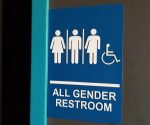Anita Hill Will Chair a Commission on Sexual Harassment in Hollywood
Anita Hill, who bravely brought sexual harassment into the national conversation when she testified against Supreme Court nominee Clarence Thomas in 1991, will chair Hollywood’s newly announced Commission on Sexual Harassment and Advancing Equality in the Workplace. The commission, funded and formed by around two dozen of Hollywood’s top executives, will “adopt best practices and create institutional change that fosters a culture of respect and human dignity throughout the industry.” Hill already serves on the board of the National Women’s Law Center and the Boston Lawyers Committee for Civil Rights.
“We will be focusing on issues ranging from power disparity, equity and fairness, safety, sexual harassment guidelines, education and training, reporting and enforcement, ongoing research and data collection,” said Hill in a statement. “It is time to end the culture of silence. I’ve been at this work for 26 years. This moment presents us with an unprecedented opportunity to make real change.”
In 1991, Hill bravely testified before Congress that she had been repeatedly sexually harassed by Supreme Court nominee Clarence Thomas. During her testimony, she was subject to invasive and sexist questioning by the all-male, all-white Senate Judiciary Committee. The committee was a wake-up call for women across the country, who recognized their own struggles not only in her testimony against Thomas but in her battle to get the all-male committee to take her seriously and treat her with respect.
Lucasfilm president Kathleen Kennedy first called for such a commission back in October, when she spoke at the Elle Women in Hollywood celebration. “The organizations that constitute the American film industry — the studios, the unions, the guilds and the talent agencies — should immediately convene a commission charged with the task of developing new, industry-wide protections against sexual harassment and abuse,” she said.
The committee, she proposed at the time, should help to institute “zero-tolerance policies for abusive behavior and a secure, reliable, unimpeachable system in which victims of abuse can report what’s happened to them with a confident expectation that action will be taken, without placing their employment, reputation and career at risk.”
“The Commission will not seek just one solution, but a comprehensive strategy to address the complex and inter-related causes of the problems of parity and power,” Kennedy said in a recent statement. “The fact that so many industry leaders – across film, television, music, digital, unions, agencies, ATA, AMPAS, television academy and guilds – came together, in one room, to explore solutions speaks to a new era.”
The initial meeting to form the Commission was attended by a number of union and trade organization representatives, including David Young, the executive director of the Writers Guild of America; Gabrielle Carteris, president of the Screen Actors Guild/AFTRA; Russ Hollander, executive directors of the Directors Guild of America; Susan Sprung, associate national executive director/COO of the Producers Guild of America; and Karen Stuart, executive director of the Association of Talent Agents.
However, I was disappointed not to see any representatives from I.A.T.S.E (International Alliance of Theatrical Stage Employees, Moving Picture Technicians, Artists and Allied Crafts), the Teamsters Union, or any of the other production crew unions. Sexual harassment and assault don’t only happen to high-level creatives; they also happen to stagehands and crew members, and those employees deserve to be heard.
The Commission also included head honchos from the studios, including Bob Iger, Disney’s chairman/CEO; Jeff Blackburn, the Amazon SVP of business development; Ted Sarandos, chief content officer at Netflix; and Tony Vinciquerra, Sony’s chair/CEO.
(Via Jezebel and The Hollywood Reporter; image via Shutterstock)
Want more stories like this? Become a subscriber and support the site!
—The Mary Sue has a strict comment policy that forbids, but is not limited to, personal insults toward anyone, hate speech, and trolling.—









Comments are closed.